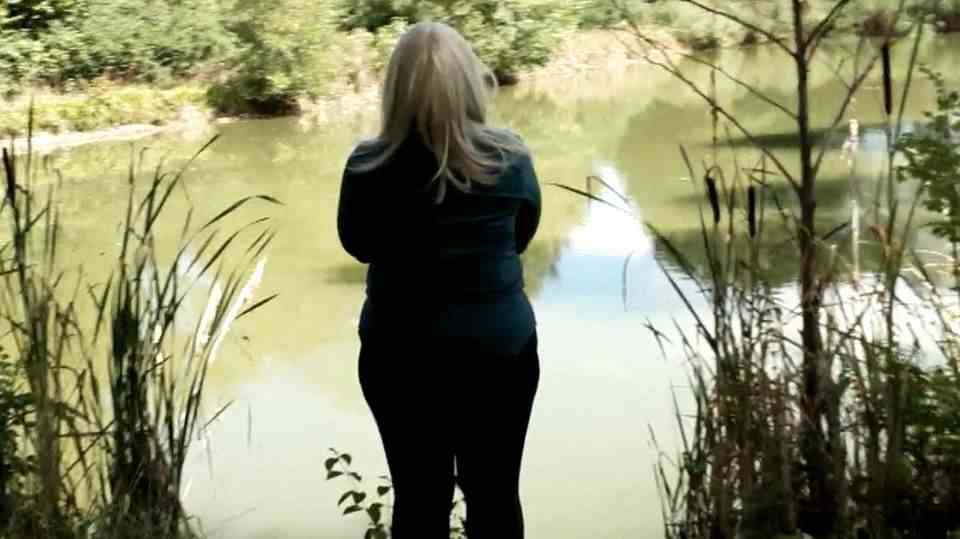They wanted to take a stand against the repeal of the right to abortion: three women staged a peaceful protest in the US Supreme Court – and then felt the full harshness of Washington’s penal system.
Three women in the United States who peacefully protested the country’s highest court abolishing abortion rights have raised serious allegations against the Washington law enforcement authorities. After their arrest, they were held in “inhuman” conditions and mistreated, Rolande Baker, Nikki Enfield and Emily Paterson reported British Guardians and the nonprofit US news network Free Speech TV.
The activists – including a 71-year-old great-grandmother with a walking disability – arrived at the Supreme Court before sunrise on November 2 and waited more than four hours for tickets to a public hearing, the newspaper writes. Paterson, a business executive and mother of two from Virginia, was the first to stand during the meeting, held up her hands to show they were empty and said, “I respectfully rise to denounce Dobbs. Women of America, chooses!”
Abortion banned in many states
With its decision in the “Dobbs vs. Jackson Women’s Health Organization” case in June, the Supreme Court overturned the decades-old landmark decision Roe vs. Wade and returned the competence to enact abortion laws to the individual states. As a result, several Republican-governed states have largely banned abortions once the fetus has heart activity—that is, after about the sixth week, when women often don’t even know they’re pregnant. Exceptions are usually only allowed if the life of the pregnant woman is threatened. Victims of rape or incest, on the other hand, have to carry their children to term.
Second, 71-year-old Baker, a former Arizona teacher, said, “The right to choose will not be taken away from us. Women, vote for our right to choose.” Then Enfield stood up and said, “We’re going to restore our agency. Women of America, vote!”
Protesting in the courtroom is forbidden, so according to experts it was not very surprising that the three women were arrested, as the “Guardian” writes. But the abuse they say they suffered during their 30-hour detention could violate the US Constitution and international law.
Abortion is a taboo subject
From Uma Thurman to Nicki Minaj, these celebrities have spoken out about their abortions
The women were moved a total of three times, almost always in dark, tightly packed vans with temperatures as high as 38 degrees Celsius, Paterson said. Up to five people would have sat shoulder to shoulder on each bench, their knees almost touching the wall in front of them. Poles were placed across their laps and under their chins like on a roller coaster ride. “They seemed designed for maximum cruelty,” Paterson said.
“No one should be treated like this”
In the prison in Washington, the activists said they were locked in cells smeared with blood and feces, which would have been reminiscent of dog kennels – but “you wouldn’t keep a dog there,” said Baker. “It was the most inhuman place I’ve ever been.”
Two of the women were put together in an approximately 1.20 x 1.80 meter cell – including a metal bed frame and toilet. The beds had no mattresses and a bright skylight stayed on all night, making sleeping impossible. Her legs are still covered with dark bruises from sitting on the two centimeter high metal ledge on the side of the bed. At temperatures of more than 30 degrees, they were also denied food and water over long distances, Paterson wrote on Twitter. Her repeated requests to contact lawyers have gone unanswered. “It was surreal, just torture,” Paterson said, speaking of a night of “hell.”

Baker reported that her cane and reading glasses were taken away from her. She was denied medical care for hours despite falling in police custody and suffering from unusually high blood pressure and swollen limbs. She tried to lie down on the bed frame with her orthopedic shoe as a pillow, but was in severe pain. “Everything just hurt,” the 71-year-old told the Guardian. She spent most of the night on the toilet because she had nowhere else to sit. All three women – including Baker, who was unable to walk – were reportedly bound at the ankles, waist and wrists before the arraignment in federal prison. They were “appalled at the conditions of detention that we and everyone else arrested were subjected to,” Enfield said. “It was all about survival in there,” added Paterson. “It’s not just like her us have treated but no People should be treated that way.” After the indictment, they were released from the courthouse without bail, the women said.
Peaceful protesters often don’t need to be jailed after they’re arrested, Brenda V. Smith, a professor at American University’s Washington College of Law, told The Guardian. If they are not violent and there is no risk that they will not show up for charges or trial, they can be released, which is often the case with peaceful demonstrators. “They could have been quickly charged, dealt with, and then released,” Smith said.
All US prisoners have the right to safe and humane treatment under the Constitution and international human rights law. Authorities have a duty to provide prison inmates with decent living conditions, provide them with physical and mental care, and take into account certain vulnerabilities such as age, disability and sexuality when deciding whether and how to hold an arrested person. However, these requirements often deviate from reality, writes the “Guardian”. Detention centers both in Washington and many other places in the US have long histories of allegations of human rights abuses, poor sanitation, unsafe medical conditions, discrimination, and physical and sexual violence.
Despite her traumatic experiences, Paterson feels empowered in her approach: “The experience was more intense than I had imagined, but it makes me even more proud of our work,” she wrote on Twitter. “I have joined the long history of courageous Americans who have used peaceful civil disobedience to protest unjust, unethical and immoral laws.”
Sources: “The Guardians”, Free Speech TV, Emily Paterson on Twitter



